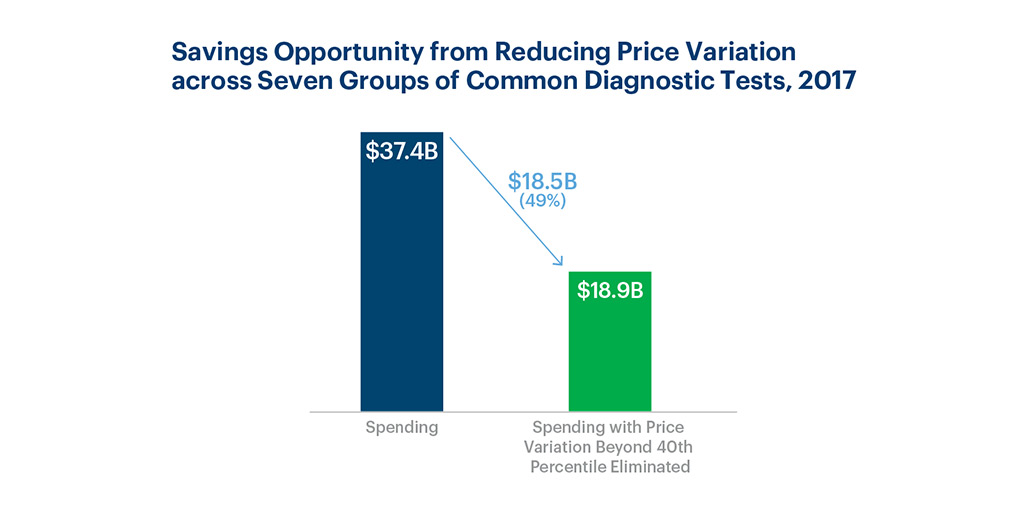U.S. health care spending is rising and projected to reach $6 trillion by 2027, nearly 20% of GDP. Increased spending is driven by prices that are high on average and vary significantly. This price variation leads to gross overspending by many consumers.
A new research brief from UnitedHealth Group examines price variation in health care and calculates the savings potential between what is currently paid and what could be paid if high-priced services were each re-priced to a lower level already available for that same service.
Specifically, the brief illustrates the issue of price variation by addressing seven groups of common diagnostic tests, including:
- MRI
- Ultrasound
- CT
- Pathology
- Microscopic Examination
- Radioisotope Scan and Function Studies
- Mammography
The brief shows that if the price variation of these diagnostic tests was reduced, consumers would have saved $18.5 billion in 2017. Reducing higher prices to amounts already agreed to by many providers can help lower the total cost of health care.


Share This Story